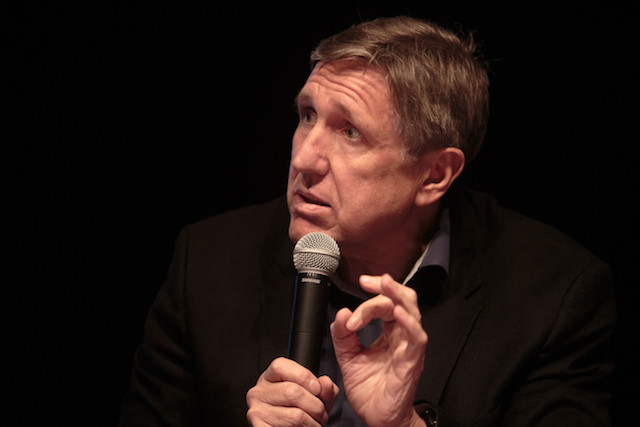Bausch was speaking at a neighbourhood meeting about reducing crime and drug abuse in the area around the central train station on 25 September.
According to RTL, Bausch said:
“Basically solving this means, for me, I say this very clearly, that the Nigerian mafia has to be stopped. That’s the alpha and omega. If we don’t get that done, then we can take as many actions as we want, we can mount as many [security] cameras as we want. And to get that done, we have to work together.”
RTL cited police figures reporting 3,960 cases in the Gare district and 2,260 cases in Bonnevoie last year, compared to just 500 cases in Gasperich.
Nigerian nationals were not cited in the police force’s 2018 annual report.
Asked if it was unfair to specify a specific nationality and if there were statistics showing this to be the case, Dany Frank, a spokeswoman for Bausch, told Delano on Friday: “It’s a fact. Plain and simple.”
Eyitayo Faderin. Photo provided by Eyitayo Faderin
In response, Eyitayo Faderin told Delano on Friday: “As a Nigerian Luxembourger resident in Luxembourg since 2007, I exhaled in fury and frustrations” when she saw the RTL headline.
In a phone call and subsequent email to Delano, Faderin, a dual national, stated:
“Luxembourg is a diverse and multicultural country with over 200 nationalities inhabiting a relatively small landscape. Why would a government official sanction holding up and pointing fingers at one nationality as responsible for acts of criminality that has been in existence in a particular area since time-immemorial? Without concrete statistical proof, what data has been presented to validate that, of all the numerous gangs and criminal groups operating in the Gare area, there is a ‘Nigerian mafia’ behind the entire operations?
“This accusation is akin to stereotyping a group of people to the detriment of an entire country.”
She also thought media treatment of Nigerians was often unbalanced. Faderin asked rhetorically if comments made by cabinet minister, hypothetically such as “Italian mafia responsible for indiscriminate number of post-box companies in Luxembourg” or “Syrian refugees responsible for converting citizens to Islam to fight jihad with Isis” would be published by the press. She said:
“These are simple examples to show how dangerous and detrimental it is for a person with a voice that is heard far and wide to scapegoat a nationality for whatever wrong doing.”
Faderin continued:
“With regards to my frustration, as a Nigerian, I am particularly tired of the relatively small group of my country people giving us a bad name all over the globe. Yes, there is criminality committed by some Nigerians all over the world, just as criminality is committed by some members of other nationalities on the face of the Earth. When acts of criminality by Nigerians is the only story told about such a great country and its people, the western media do us immeasurable injustice! Nigerians must be the most resilient nationality in the world. As immigrants, we are not only present on all continents on the globe, but our high-achieving nature places us tops in most fields from the arts, academia, science, engineering, music, just to name a few. I often wonder why stories of our success are not been told by western media, but in contrast, we are brandished as ‘mafia’.”
Faderin then stated:
“In the absence of a diplomatic representation for Nigeria in this country, I urge Minister Bausch to refract his statement/accusation and apologise to responsible Nigerians contributing to the diversity and success stories of Luxembourg. He should be aware of the damage his conclusions will have on our daily interactions in this country, how the level of discrimination and bully we experience in Luxembourg will certainly intensify.”

